Posted in: 11/16/2021
Contributing with job and income generation for a community, in itself, would already guarantee a social project of high investment in society, which aims to build social equality and enables local development.
But have you ever thought about being able to combine this with an initiative that, in addition to everything else, could help in the prevention against an emergency health situation?
This was exactly the solution found by the Barcarena Crossing Project, implemented in the municipality of Barcarena, in Pará.
Aiming to contribute to local families, who were in a situation of socioeconomic vulnerability aggravated by the covid-19 pandemic, Synergia Consultoria was hired to put into action a project that could give this support to the community, generating work, income, and, mainly, a new expectation for the people involved in the project. Besides, of course, a reinforcement in the prevention against the disease.
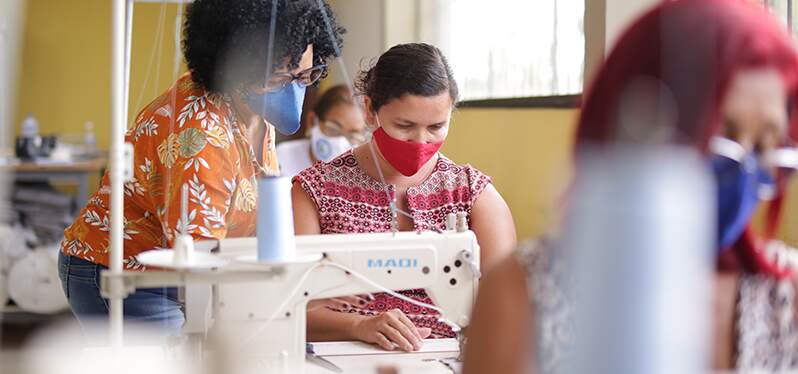
The initiative, articulated by the Hydro Sustainability Fund (FSH) together with financing, implementation, and local partnerships, consisted of two fronts of action:
Synergia acted as an implementing partner in the Confection and Sewing Module, being responsible for the technical management of the project, support to confection and sewing, with job and income generation in an articulated manner in the territory.
But, to understand how these fronts present themselves and guide the solution implemented in the project, let’s learn more about the applied solution itself?
Let’s remember the plan of Crossing Project: to generate work and income for the community of Barcarena (PA). To this we will add another challenge: dealing with the situation created by the covid-19 pandemic and the increased social vulnerability in the municipality. And finally, an extra goal: to actively collaborate in fighting the pandemic.
But how to do this?
The solution found consisted in the development of a work of many steps, which could collaborate with all the phases demonstrated previously: with the plan, the challenge, and the extra goal.
Thus arose the Barcarena Crossing Project, focused on making, and later donating, 170,000 homemade face masks to protect against covid-19. The project involved 73 seamstresses, who received training and qualification to perform the work.
Synergia formulated its performance in the project based on the concept that the dynamization of the local economy is a means to create conditions and establish alternatives that contribute to minimize the impacts of the pandemic on the population’s income. Thus, it supported its actions and instruments in line with the development strategy of the Todos pelo Trabalho (All For Work) program, whose goal is to contribute to initiatives that support and promote employment, work, and income in Barcarena.
Based on this work, Synergia was responsible for several stages, such as technical management, support to confection and sewing, with job and income generation, which occurred in an articulated manner in the territory due to the integration with the Rede Todos pelo Trabalho (All for Work Network), which brings together several social segments aiming to promote employment, work and income in Barcarena. It was from the Network that the seamstresses were identified and organized by the local community associations.
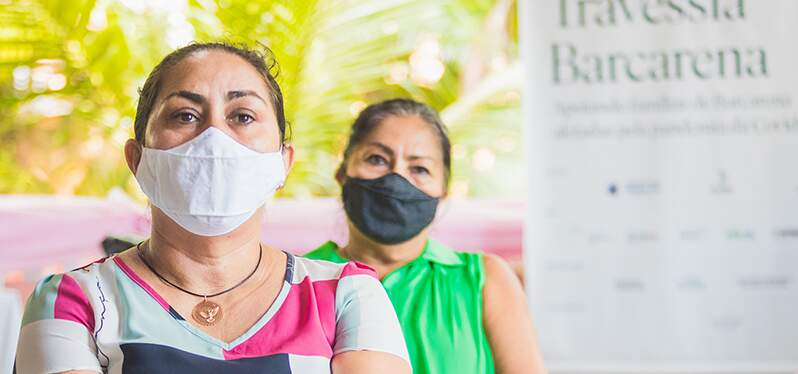
All the material used in making the masks, such as masks, such as fabrics, trims and packaging, was made available to seamstresses. The masks produced were distributed free of charge to the population most affected by the pandemic, according to data from the Barcarena Health Secretariat. The donations were directed to non-profit entities mobilized by the Sustainable Barcarena Initiative (IBS) – which is also supported by Synergia.
Besides the immediate income generation for the professionals, who were paid for their production, the project also made it possible for the participants to acquire knowledge, through the qualification carried out by the training program. Besides this, the project also generated income for the three community associations that articulated the seamstresses and gave support to the work done.
This qualification included both technical guidance on tailoring and sewing and the specifications and requirements for producing the non-medical masks, including guidance with health professionals on coping with covid-19.
The training also included knowledge in the areas of entrepreneurship, business, and the use of digital tools to improve local production and expand the market, generating continuous development of new products and sustainability of the region’s business post-pandemic.
The Crossing Project has brought impacts not only in the generation of work and income and in the prevention of COVID-19 but has also promoted female empowerment. This could be perceived both individually and collectively from reports of personal overcoming, socioeconomic inclusion, access to knowledge, and local knowledge valorization.
Knowledge in itself is a factor of social empowerment, and in the project the formative actions and the exchanges with the group strengthened this feeling even more by the perception of being referenced in a collective, of being able to re-signify the social articulation of work considering the possibility of integrated actions with the collective, sharing resources and knowledge.
The Project promoted a total of 1,232 hours of training for 120 seamstresses. These hours dedicated to sharing knowledge, learning, and experiences associated with the work practice and its challenges contributed to the constitution of a network of seamstresses whose maintenance and strengthening, with an impact on the confection and sewing context in Barcarena, should be one of the main legacies of the Project.
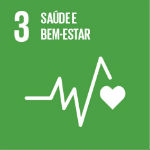
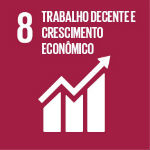
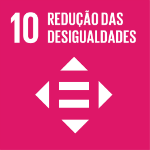
Sign up and receive our news.